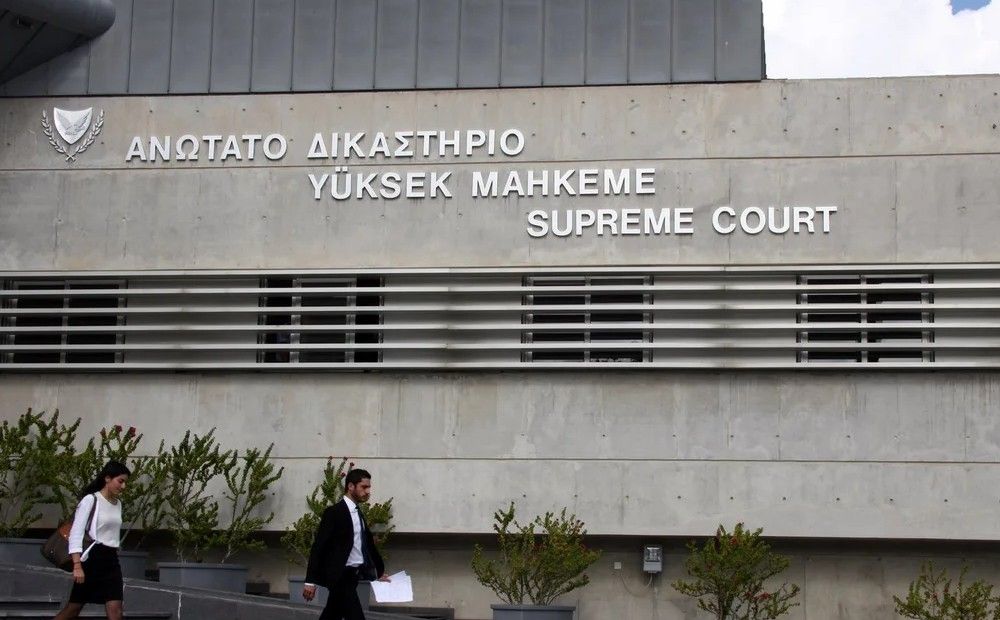
iFX EXPO International 2025 уже совсем скоро, и сообщество онлайн-трейдинга с нетерпением ждет это событие. Выставка, которая...

Внешнеэкономическая деятельность играет ключевую роль в экономике страны. Рассмотрим динамику и структуру экспортно-импортных...

Название Hellenic Bank уходит в историю. Это имя появилось в 1976 году, и теперь, со сменой акционера, спустя 49 лет, оно исч...

Панельная дискуссия Yachting Beyond Luxury: Turning the Tide in Investment Opportunities состоялась 23 мая на площадке Limass...

Кипрский политический и экономический аналитик Фиона Маллен возобновила формат кратких еженедельных обзоров, в которых выделя...

Сельское хозяйство Кипра, несмотря на свою скромную долю в экономике, продолжает играть важную роль в обеспечении продовольст...

Статистическая служба Кипра сообщает о 3% росте ВВП в первом квартале этого года по сравнению с первым кварталом прошлого год...

Телесериал Love Rat, снятый на Кипре, поднялся на 3-е место на Netflix в Великобритании. Фильм снимали при поддержке государс...

Панельная дискуссия Yachting Beyond Luxury: Turning the Tide in Investment Opportunities состоялась 23 мая на площадке Limassol Boat Show в рамках Best Invest Congress 2025. Участники обсудили, как яхтинг превращается в элемент ин...

Кипрский политический и экономический аналитик Фиона Маллен возобновила формат кратких еженедельных обзоров, в которых выделяет события, способные повлиять на средне- и долгосрочную ситуацию на Кипре. В своей новой подборке она ак...

Сельское хозяйство Кипра, несмотря на свою скромную долю в экономике, продолжает играть важную роль в обеспечении продовольственной безопасности, сохранении культурного наследия и развитии сельских районов. В 2025 году сектор стал...

Как сделать бизнес на Кипре более масштабным, понятным и защищенным? Стоит ли присоединяться к Торгово-промышленной палате, если вы – иностранец с собственным делом? И как использовать международные связи Палаты, чтобы выйти на но...

В мире цифровой трансформации, где чаще говорят о технологиях, а не о людях, стоящих за ними, Вассос Аристодему остается сдержанной, но влиятельной фигурой кипрского IT-сектора. Как основатель и генеральный директор NETinfo Plc, о...

Предприниматель с ярким видением и инноватор в сфере энергетики, Евгения Иродоту – основательница компании EnergyIntel, преобразующей энергетический ландшафт Кипра и других стран. В ее подходе сочетаются аналитический склад ума, с...

Название Hellenic Bank уходит в историю. Это имя появилось в 1976 году, и теперь, со сменой акционера, спустя 49 лет, оно исчезнет и ему на смену придет Eurobank. Как будет происходить ребрендинг банка? Новый объединенный банк, к...

Исчезнувший кооперативный банк (Co-op Bank) собираются возродить, открыв похожую по принципу работы финансовую организацию. Новый банк ищет стартовый капитал, а его акции могут продаваться по цене 100 евро каждая. Какие еще извест...

Несмотря на недавние военные столкновения между Индией и Пакистаном, для Кипра прямых экономических угроз не наблюдается. Торгово-инвестиционные связи Кипра с этими странами ограничены, а дипломатические отношения с Индией остаютс...

Рост цен на жилую недвижимость продолжил замедляться в четвертом квартале 2024 года, согласно данным Центрального банка Кипра. Основной причиной является дороговизна строительных материалов и высокая ...

На Кипре открылся Центр обслуживания бизнеса – единое учреждение по всем вопросам для иностранных и местных инвесторов и предпринимателей, желающих вести дело на Кипре. Правительство надеется снизить ...

iFX EXPO International 2025 уже совсем скоро, и сообщество онлайн-трейдинга с нетерпением ждет это событие. Выставка, которая объединит тысячи профессионалов и более 170 ведущих брендов из разных сегм...

В современном деловом мире торговая марка – это не просто название или логотип. Это ваш бренд, ваша идентичность, а зачастую и один из самых ценных активов компании. Независимо от того, ведете ли вы бизнес на Кипре или расширяетес...

Полное членство в Шенгенском соглашении является политическим приоритетом для Кипра, как заявил министр иностранных дел Константинос Комбос. За последние два года страна достигла значительного прогресса в выполнении требований Евр...

Интеллектуальная собственность – один из ключевых активов современного бизнеса. На днях Верховный суд Кипра принял решение, которое может существенно повлиять на сферу интеллектуальной собственности в стране. Это решение подчеркну...

Кипр вошел в топ-40 по всему миру и второй год подряд остается самой быстрорастущей экосистемой стартапов в Европе. Особенно сильной сферой острова считается геймерская индустрия и финтех. Министр исследований, инноваций и цифрово...

В Лимассоле 18-20 июня состоится ретрит Voice to Millions, организованный компанией Heart Powered Business, где бизнес-лидеры за 3 дня смогут создать авторскую программу для своих клиентов и научатся писать фирменную речь, которая...

Министр внутренних дел Константинос Иоанну поделился, что одним из ключевых препятствий в привлечении специалистов и инвесторов является недостаточно развитая инфраструктура острова, в частности ограниченное количество государстве...